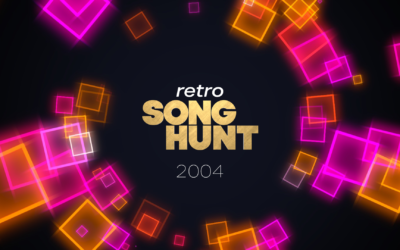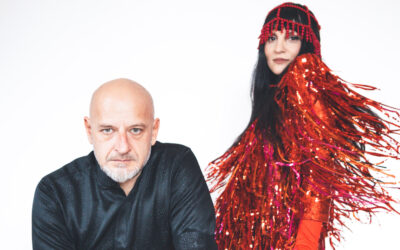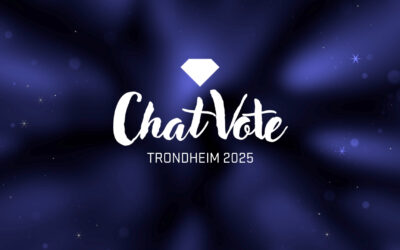Our line-up check series is nearing its conclusion, and this time it’s the turn of the countries of the former USSR – with the exception of Estonia, Latvia and Lithuania, who came under the microscope as part of our “Eastern EU” article.
Looking back
With the eastern part of the continent scarcely represented until the early 1990s, the countries included in this article naturally have a rather shorter ESC history than many. Despite this, some of them have achieved great success on the Eurovision scoreboard.
For a start, the line-up contains three winners. Russia first participated in 1994 and, following a patchy start, have developed into one of the event’s real powerhouse nations. Dima Bilan took victory in 2008 with “Believe”, and the grannies of Buranovskiye Babushki came in as runners-up to Loreen in last year’s event.
Ukraine and Azerbaijan were even quicker to get going, recording victories on their second (Ruslana, 2004) and fourth (Ell/Nikki, 2011) participations respectively.
Relatively recent debutants Armenia and Georgia seemed to be invincible from semi-final failure until Emmy (2011) and Anri Jokhadze (2012) proved everyone wrong by not reaching the Saturday night grand final.
Meanwhile, Moldova and Belarus have a rather more inconsistent record, with the latter in particular struggling to qualify and only notching up one top ten finish to date – but it has delivered some cult moments for ESC fans along the way, from Alexandra & Konstantin and Angelica Agurbash to 3+2’s wings and “I Love Belarus”.
The ex-USSR nations in 2013
Armenia sat out last year’s competition due to its prolonged conflict with neighbour and host nation Azerbaijan. They initially nominated singer Gor Sujyan to represent them on their return in 2013, but Sujyan’s band Dorians is now the official artist for Malmö.
To say that “Lonely Planet” is flying under the radar would be an understatement: most fans have it considerably nearer the bottom of their personal rankings than the top. And yet I think Armenia are going to do rather well this year – and not just “because they’re Armenia”. The song has a strong chorus, stands out thanks to its decidedly un-ESC style, and is engagingly performed by Sujyan (even if some of his fellow band members are marvellously non-photogenic). And that’s before we get to the promotional potential benefits of having Black Sabbath’s Tony Iommi on board as a composer. Good stuff!
Top 10 |
victory |
personal |
||
 |
 |
 |
Azerbaijan can never be written off in the context of the modern Eurovision Song Contest. Following the usual extensive televised talent search, they held a conventional national final for once, although the outcome was quite predictable: 21-year-old Farid Mammadov was the advance favourite and duly won the ticket to Sweden.
“Hold Me” is the kind of song that forces you to pose the question: Does Azerbaijan want to win Eurovision again? Because if they do, and if they’re willing to put in the usual work behind the scenes to optimise their chances, then we could very easily be heading back to Baku in 2014. In any case, the song is strong and very much in keeping with what does well at “21st century ESC” and the performer is appealing – so a comfortable top ten (and even top five) finish seems practically guaranteed. How much further Farid can go remains to be seen.
Top 10 |
victory |
personal |
||
 |
 |
 |
Belarus is renowned for having an extremely flexible approach to its national finals. More specifically, there’s never any guarantee that the winning song or the winning artist will actually get to go to Eurovision. This year was no exception, as Alyona Lanskaya – herself replaced as the performing artist last year – originally took “Rhythm Of Love” to victory, only for Belarusian TV to change their mind and pick up a several-years-old track from serial Eurovision participant Marc Paelinck (Belgium 2002/2004, Malta 2009) instead.
“Solayoh” is the song in question, and it really ought to get through the ballad-heavy first semi-final with little difficulty. I can’t see it doing a great deal in the final, though – Alyona is a professional but quite cold performer, and there will be huge competition for neighbouring and regional votes, as the rest of this article will show! Nevertheless, she should have every chance of improving on Belarus’s second-best ESC result of 24th.
Top 10 |
victory |
personal |
||
 |
 |
 |
Georgia know how to make themselves popular among the accredited journalists and fans at the contest, hosting legendarily wine-soaked parties every year. Not that they need to bribe people with alcohol to get good press, as they generally end up on the left-hand side of the scoreboard anyway – although that trend was broken last year by the failure of the rather inaccessible “I’m A Joker” to qualify for the final.
“Waterfall” is their response to that setback, a song specially commissioned from composer and reigning ESC champion Thomas G:son. It’s a slow-building duet with a whiff of the atmosphere that “Running Scared” conjured up in 2011 (and a key change directly lifted from “Quédate conmigo”), and if the fans and bookmakers are anything to go by, it’s slowly but surely evolving from a dark horse into an outright favourite for victory. I’m not sure I quite see it myself, but it’s by no means impossible, and a return to the top 10 for Georgia seems a near-certainty as long as Nodi and Sophie perform the song well.
Top 10 |
victory |
personal |
||
 |
 |
 |
Moldova have achieved something unique in the free-language era of the Eurovision Song Contest: since their national final, they’ve opted to change the language of their entry from English into the native tongue. Sadly, this means we lose one of the year’s most remarkable lyrics: “The Maya were not so wrong, it’s the end of the world”, which was not merely a throwaway line from a verse, but the very hook of the chorus. Shame!
“O mie” definitely works better in Romanian, though. It’s a strong, impassioned ballad that’s quite typical of the wider Balkan cultural area – think “Suus” with less attitude but more of a tune – and singer Aliona Moon is a little quirky but charming enough. I see it as a safe qualifier, and a top 10 finish isn’t entirely out of the question given Moldova’s ability to get the best out of their entries visually. (Also, fans of the male gender won’t be too disappointed to learn that last year’s representative, Pasha Parfeny, wrote this song and will be accompanying Aliona on stage. Hurrah!)
Top 10 |
victory |
personal |
||
 |
 |
 |
Russia often delivers something a little different at ESC, from grannies offering baked goods to the late-night depression of Peter Nalitch and the rapidly aging faces of Anastasiya Prikhodko. This year, however, they’ve gone right down the middle with a hugely conventional “Euro-ballad” song by 22-year-old Dina Garipova, winner of the local edition of TV show The Voice.
“What If” asks no fewer than eleven different questions but provides very few answers. Russia is riding high in the betting, and you can understand why – but to me this feels more like the kind of song you worry will win Eurovision, but that ultimately doesn’t. (I’m reminded of “Sister” by Sergio and the Ladies at this point!) Still, with a healthy voting bloc and an unquestionably strong singer, another good showing on the scoreboard appears likely. Whether the Malmö audience will react to Dina’s performance as emotionally as the multi-cultural extras in her remarkable video remains to be seen.
Top 10 |
victory |
personal |
||
 |
 |
 |
Ukraine have a habit of pairing their ESC entries with intricate, almost excessive stage shows. Sometimes it works – think Ruslana or the sand artist in 2011 – and sometimes it doesn’t (Svetlana Loboda’s “hell machine” is presumably now gathering dust in a garage somewhere). This year looks to be no exception, with reports that singer Zlata Ognevich will be accompanied on stage by a man almost 2 metres 50 in height, who will play the part of a warrior defending her on the way through the forest. Well, obviously.
That said, anything that distracts from the Ukrainian song, “Gravity”, is probably to be welcomed. It’s another one that’s riding high in the betting, but I find it quite impossible to listen to – unstructured, messy, irritating on the ear, just three minutes of directionless shouting with one fake climax after another. Still, “loud is the new good” is a policy that’s been successful on TV talent shows over the years, so maybe it’ll hit the spot at ESC too. A winner, though? Hopefully not.
Top 10 |
victory |
personal |
||
 |
 |
 |
The bottom line is that this group of countries will make a big impact on the scoreboard in a few weeks’ time. It’s not beyond the realms of the possibility that they could all land in the top 10, and there are realistic chances of victory for Azerbaijan, Georgia and Russia. I’d be happiest with a shock Armenian victory, though!
You can give us your own opinion by voting in the poll on the right-hand side of our website: Which song from the ex-USSR nations do you like best? The poll will remain open until Thursday morning.
As always, we should emphasize that the judgements on the songs are based on the personal taste of the author, and that the predictions made here might be very different to the predictions we make once the rehearsals begin!








0 Comments